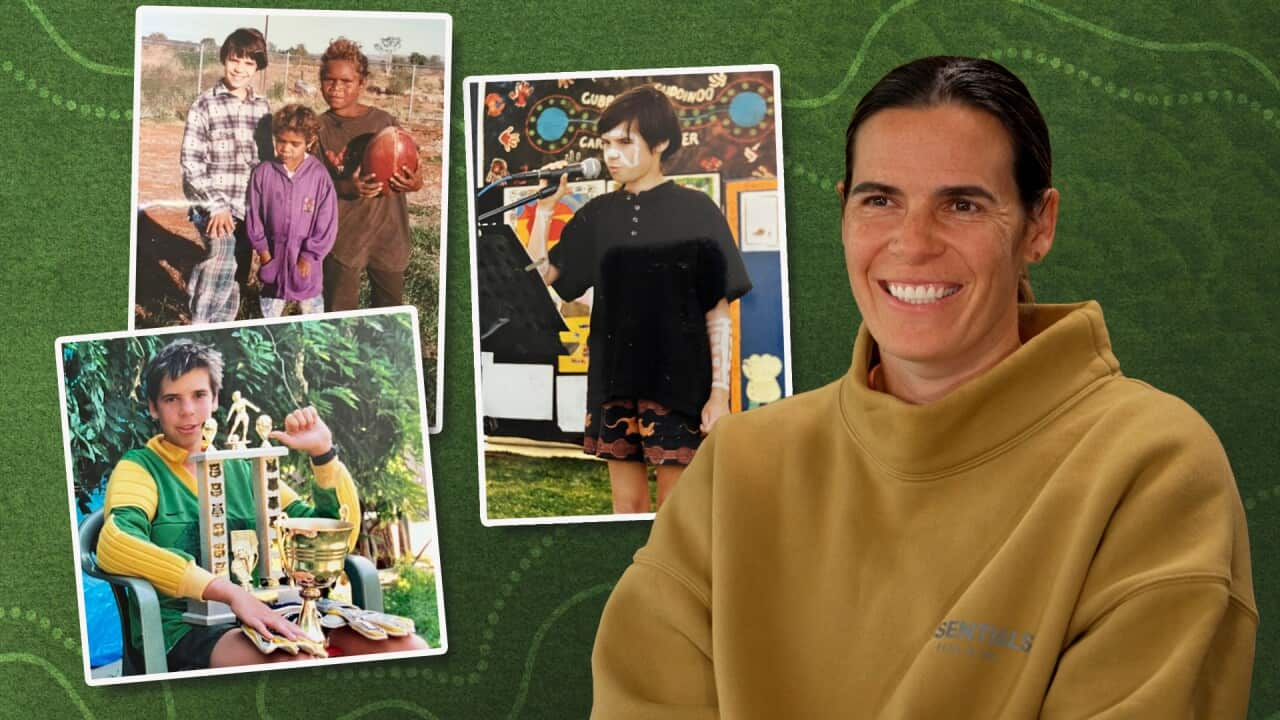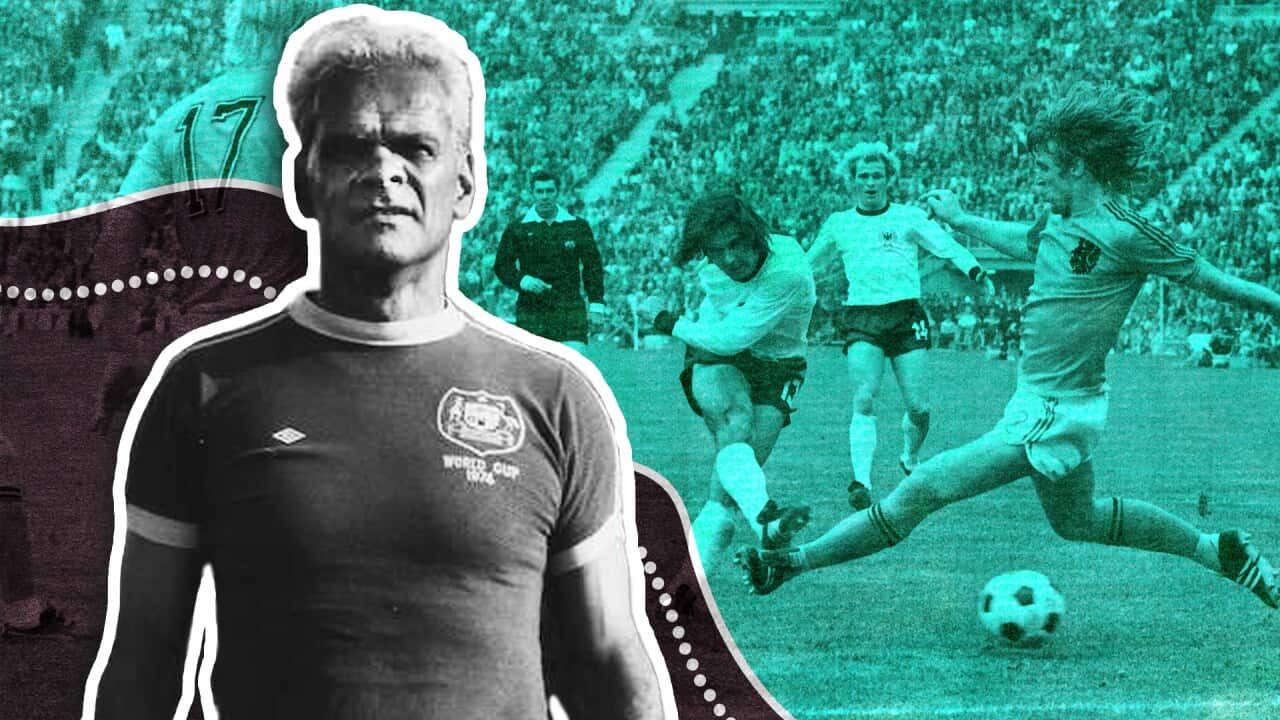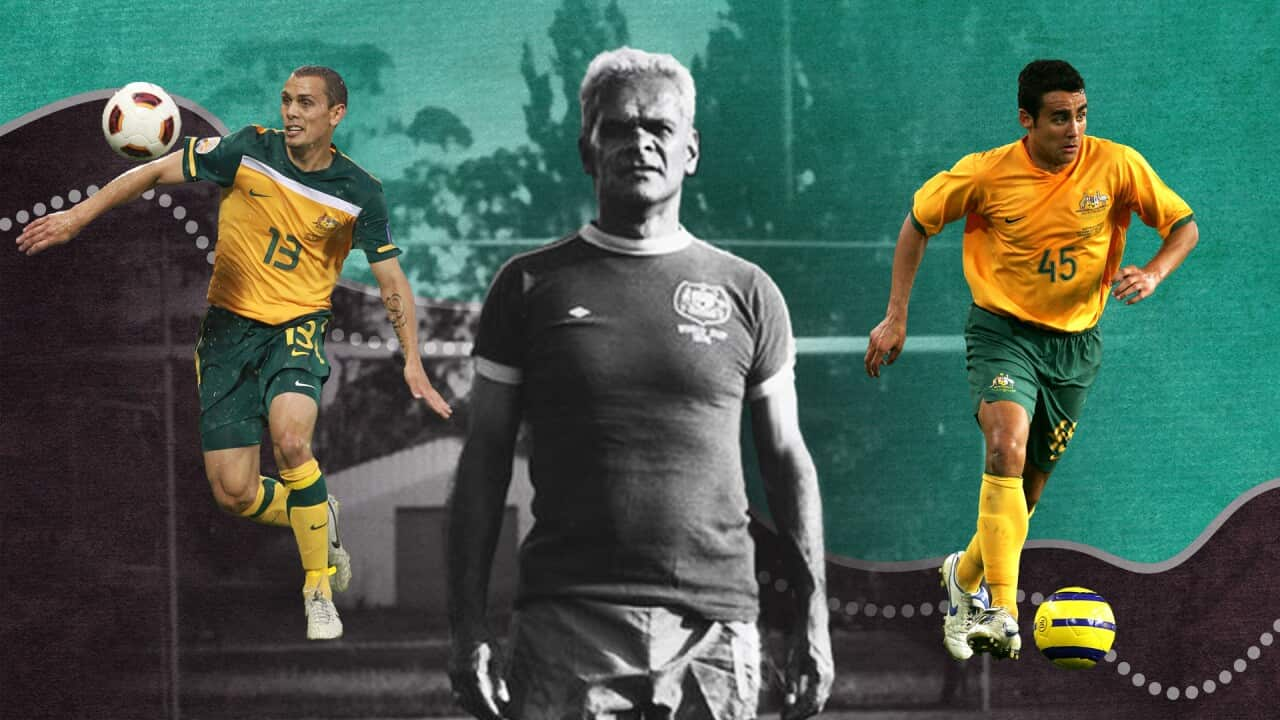She is Australia's longest-serving Matilda, competed in two Olympic Games and five World Cups but Lydia Williams still gets nervous walking out onto the field.
"It's a good thing!" she laughed.
"I still care and I really enjoy playing."
It's her love of the game that's made the 35-year-old stick around.
Stream free On Demand

Lydia Williams - Paris Dreaming
episode • Living Black • Current Affairs • 25m
episode • Living Black • Current Affairs • 25m
"I've always wanted to prove people wrong and do what I enjoy doing and what I feel like I have a talent in," she said.
"I had a wonderful career in playing, but now it's turning into a mentoring role and supporting the next generation coming through.
"That's a real passion of mine, I'm glad I get to do that."

Lydia Williams of Australia women's national soccer team in action during the Friendly Match Game between Australia women's national soccer team (Matildas) and United States women's national soccer team. Credit: Sipa USA
Barefoot playing footy
Williams' mother is from Oklahoman in the United States, she worked on Wall Street and got a teaching degree before meeting Williams' father during Christian missionary work.
"She taught me patience, acceptance, always asking if you don't understand and finding out an answer. And being strong in your convictions on why you're doing things and questioning why things are right or wrong," said Williams.
"Seeing that kind of reconciliation between my mum and my dad and, and that kind of beauty of cross-racial relationships. It's what I really love about my mum."

A baby Lydia with her mother and father. Source: Supplied / Diana Williams
Despite being based in Kalgoorlie, their family travelled to Aboriginal communities across Western Australia and the Northern Territory. These travels helped inform Williams' cultural identity.
"I learnt about the land and appreciated the culture. I learnt from my ancestors and really got an appreciation for what the history of being Indigenous is," she said.
During these visits, a young Williams could be found barefoot, playing footy with the local children.
"I got to play with the desert kids and the desert mob . . . As you do out in the bush, you don't wear shoes. So it was always playing on red dust, bare feet, a footy and making up your rules and where the goal is," she said.
"I just loved it because it was outside, it was community and making friends through sport."

A young Lydia alongside two friends during visiting a desert community. The trio had been playing AFL and soccer. Source: Supplied / Diana Williams
In her early years, Williams idolised players like Peter Matera, and Gavin Wanganeen.
As Williams began her sporting career, she experienced racism on and off the field.
"Dad would walk along with me and people would yell 'whose kid is that?' Or we'd be in the shops and he would get short-changed so he'd have to go back and ask for the right change," she said.
"When I started sport, my Dad would be watching, he was there at every game. But there wasn't a kid on the pitch that looked as black. So people would ask 'who is this man?' or I'd go over and they'd say 'oh this is your Dad?'
"It's sad because everyone who met him, loved him. It's just first glance was automatic racism."
Becoming a Matilda and losing her father
In 1999, Williams moved with her family to Canberra. Her father connected with the local community, spending time at the tent embassy. But when Williams was 15, he passed away.
Despite being the person who pushed her to play, he never got to see her represent Australia.
"He really pushed me into sport, and really saw the potential, what sport could bring, but never really got to see the, the highest heights that I've gotten to, which is heartbreaking," she said.
"I have my mum but a lot of me is my dad. I'm happy I get to carry his memory and his honour around with my achievements."

Lydia with her Dad. Credit: Diana Williams
"With grief, it can either overcome and overbear you. You can use that in energy in different forms.," she said.
"I think football really helped me with that. I made friends and those friends have supported me through times that I have grieved like anniversary dates, and they've been there for me.
"It saved me from probably the worst thing that could probably happen to a child at that age, losing a parent."
Achievements and Accolades
From there, Williams competed at the Asian Cup, FIFA Under-20s Women's World Cup and the 2007 World Cup as a Matilda.
In 2008, she signed with Canberra United. There she won Goalkeeper of the Year and Women's Footballer of the Year and played the grand final against Sydney FC.

Lydia as a teenager with her sporting awards, and her goalie gloves. Source: Supplied / Diana Williams
She played in the 2015 FIFA Women's World Cup in Canada and won two grand finals with Melbourne City between 2017 and 2020. She's competed in two Olympics, Rio in 2016 and Tokyo in 2021.
In many of the matches, she's played alongside Anaiwan and Biripi woman Kyah Simon.
"We really understand the importance of making sure that we talk about our heritage and our culture, and being Indigenous as much as we can and how proud we are for that," she said.
"We never want to hear the word shame, or anyone feeling like they can't be proud about who they are or their skin colour. We understand that extra pressure on us, and we try to represent not only Australia but our heritage."

A young Lydia painted up and speaking at an event. Credit: Diana Williams
"I've made peace that last year was my last World Cup. It is bound to happen . . . the realisation that as a player, that was it. It was pretty, pretty hard," she said.
"But, it was something I've never experienced before. I got to see not only individuals shine, but the team shine, and no one was, was bigger than the team, and for me that's, that was amazing."
While her World Cup Career is over, she's heading to Paris for the Olympics in June. Williams believes the Matilda's can keep the momentum they built in 2023.
"The support that we've had and the success off the back of the World Cup has just been incredible. But we know that it's pressure, and it's a lot of hard work to have been able to achieve that," she said.
"We're aware of that. But we're excited to add another rung to the story."
Inspiring the next generation of Aboriginal Matildas
Williams is now Vice President of the Professional Footballers Australian Union and pushes for equal opportunity and recognition for female athletes.
She also advocates for young women to join her sport and hopes that Paris can inspire the next generation.
"Every millennial athlete that's Australian that I speak to, their sporting moment is watching Cathy at the 2000s Olympics. That's what they kind of base why they wanted to become an athlete on," she said.
"I think a lot of young kids now, their moment was the World Cup, and seeing such a global game being played just in Australia and New Zealand. But the Olympics is a different beast. It's sports you've never seen before . . . it just brings out a different side of the community."

The Matildas pose with their jerseys during the Australia Matildas World Cup squad public presentation at Federation Square. Credit: Daniel Pockett/Getty Images
But of all her achievements, she hopes she's inspired young Aboriginal girls to give themselves a go and join the sport - just like her father did for her.
"It's an amazing sport. It's one that I got to travel the world doing and got to experience so many different cultures. That's something that no other sport can do for you," she said.
"To see more Indigenous women doing that and being so proud of who they are would be my ultimate goal."







